Last Updated on August 5, 2021
Review: Family is important, but sadly as we get older we sometimes start to lose touch with those bonds as we go out into the world and try to carve out our own paths. In her new movie THE FAREWELL, writer/director Lulu Wang takes the concept of the family reunion tale, and by centering on a marvelously realized Chinese family, weaves a beautifully personal, reflective story that explores the importance of familial bonds and a clash with traditionalism that makes for what may be one of the most genuine, heartwarming and undeniably funny movies you'll see all year.
At the start (and even on the posters) we're introduced to the story as "Based on an Actual Lie," which recounts Wang's own experience of learning her grandmother (called Nai Nai, played by Zhao Shuzhen) was diagnosed with terminal lung cancer, and then struggling to come to terms with her family deciding not to tell the matriarch. Wang (A Chinese-American immigrant born in Beijing before moving to America) reconstructs this clash between her Western upbringing with the Eastern traditions her family upholds through the eyes of Billi (Awkwafina) as she travels to China to be with her family as they spend what precious little time with Nai Nai they have left, all in the hopes of leaving her with fond, happy memories.
While the family at the core of THE FAREWELL is comprised of one of the best ensembles of the year, the primary focus is on Billi and her emotional journey in reconciling her two worlds. Known for her comedy prowess and infectious energy in movies like OCEAN’S 8 and CRAZY RICH ASIANS, Awkwafina pulls a complete 180 in a performance that will completely change how you view her as an actress, arriving as a pure tour de force. Charming and funny as always, there’s a captivating subtlety to the way she has to hold in all her complicated feelings about the situation, torn between what she thinks might be the right thing to do for her grandmother and the expectations and desires of her family. This is all on top of struggling to find a sense of identity and place in the world after learning she would not be receiving a fellowship and staring down the barrel of an uncertain future.
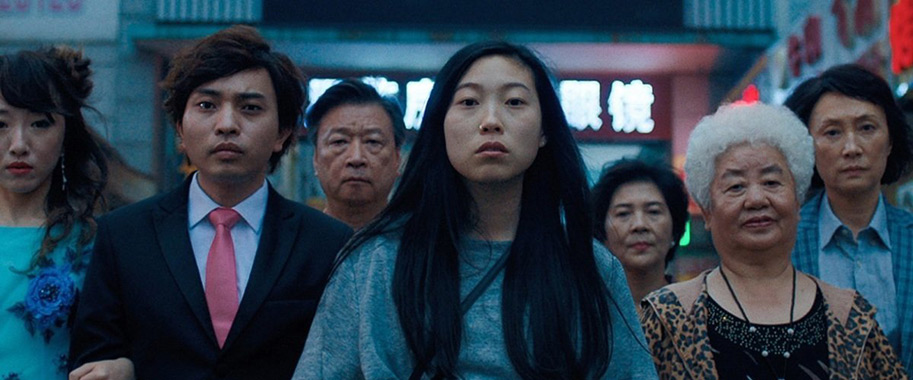
Digging so deep into her own experiences, Wang writes Billi with incredible depth which creates a fascinating emotional journey for her wherein she tries to figure out where she fits in with her eclectic, awkward family, all while having conflicting feelings about their own traditionalists ways. It all makes for a fascinating, character-driven look into Chinese culture, and for all this emotional weight on her shoulders, Awkwafina crafts Billi by giving her reserved slump, often struggling to connect to the moment she’s in. She can be surrounded by loved ones, a bounty of food in front of her, and she’s always off in her own thoughts. She's endlessly compelling, whether she's alone with her thoughts or reacting to her offbeat family. Her range as an actress goes so far beyond what we have seen from her during her short time in movies, and here she does what is no doubt some of the best work of any leading actress this year so far with a natural, empathetic, sweetly funny performance.
As tremendous as she is in this movie as its emotional anchor, Shuzhen can often steal the show as the lovable, warm, sharp-tongued, constantly direct Nai Nai, who takes charge as the de facto head of the family. Shuzhen is so effortlessly delightful and heartwarming in her American film acting debut, and she will win over audiences across the world with her sweetness and warmth, as well as a quick wit that can softly but bluntly tear down any weak links in the family chain. Perhaps some of you have or once had a grandmother like her, one who encouraged healthy eating habits, had her own little quirks and maybe even had a fascinating history behind her. For Billi she also represents an entire side of her life that has been slowly fading away for years, and their scenes together represent the movie at its best, like when Nai Nai is teaching Billi a special kind of breathing technique, and the unmoving camera captures what feels more like natural riffing than a scripted moment. These moments are tender and joyful and hinge on Nai Nai educating her granddaughter as she listens and learns, which all causes the latter to start to rebuild those lost connections to her family and roots. The entire movie hinges on their flowing, natural chemistry, and while apart they're extraordinary in their own right, together they're pure magic.
A single question drives all the big decisions in the movie – “When do we tell Nai Nai she’s dying?” – but what is meant to come out of that is an ultimate celebration of life and family, even if that means the family itself has to harbor great sorrow. Making up this cast is an ensemble of pitch-perfect performances, including from Tzi Ma, Jiang Yongbo, Diana Lin, Lu Hong, Chen Han and more. Wang films them with an honest and insightful lens, making us feel more like flies on the wall as she captures their seamless interactions as if watching her real family. Wang’s brilliant script gives them their quirks, flaws, and ways of dealing with the big issue, and their exploration always comes from a place of love, like when Billi’s uncle Haibin (Yongbo) breaks down on the stage during the wedding reception as he tells his mom how much he loves her. It’s an undeniably sweet moment, but one where Wang can’t also help but capture the funny awkwardness (most people there have no clue why he’s so sad, after all) with quick zoom shots backward, showing him crying alone on the stage in an increasingly large room, before being met with slow, earned claps.

The story itself doesn't have the kind of narrative twists and turns or huge, unburdening confessions that you may find in other films of the genre (although there is a monologue from Awkwafina that will make for the perfect Oscar clip), but rather Wang keeps things simple and flowing like a gentle stream. We get to live in the family and experience things as they do, for all their discomfort, earnestness and humor, all with that emotional cloud hanging over every action. How they address Nai Nai's illness drives the movie forward, but what makes the best moments shine is how it goes unacknowledged in every scene, with a bevy of tremendous performances delicately keeping their sorrow restrained, but ever-present on the surface. As an audience, we live with this family, and what makes THE FAREWELL such a near-perfect movie is how our time with them is so meaningful and engaging.
Between her smart, funny, emotionally rich script and working with cinematographer Anna Franquesa Solano to establish a beautiful, elegant visual style that places the audiences right in the middle of the family dynamic, Wang firmly establishes her own distinct, powerful voice as a filmmaker. This may be her story on paper, but the themes of cherishing and celebrating family and recapturing a lost piece of yourself are universal, and anyone can watch THE FAREWELL and find something to cling to. Wang and the team in front of and behind the camera have crafted a truly special, illuminating and resounding story that sports several Oscar-worthy performances and a heartfelt core that will give you pause and make you reflect on your own roots. Did I mention this movie is also really, really funny?


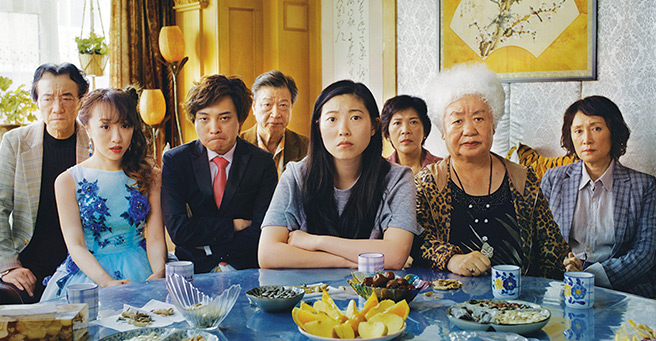





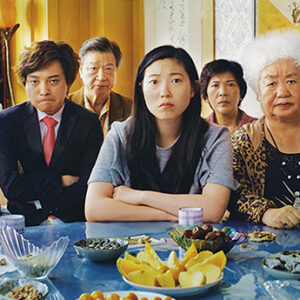
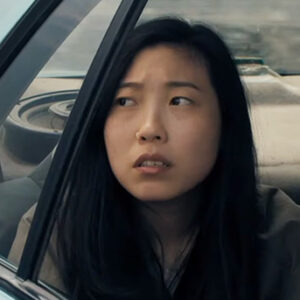

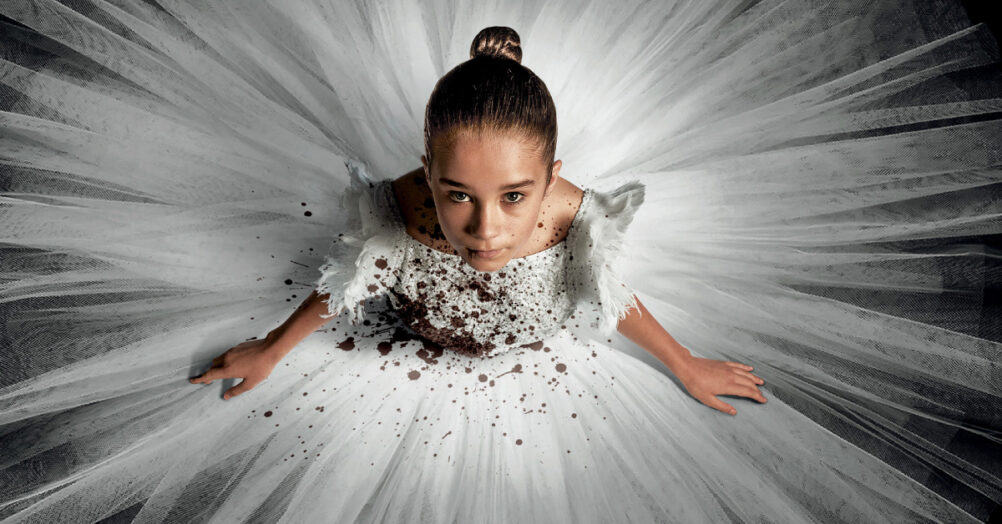








Follow the JOBLO MOVIE NETWORK
Follow us on YOUTUBE
Follow ARROW IN THE HEAD
Follow AITH on YOUTUBE